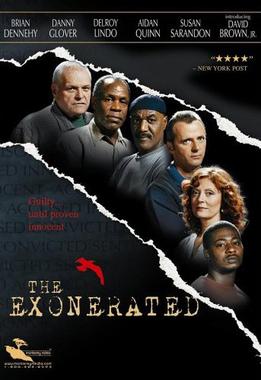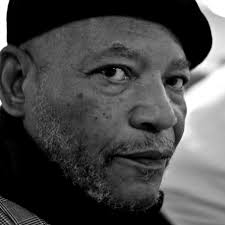Related Research Articles
Darryl Hunt was an African-American man from Winston-Salem, North Carolina, who, in 1984, was wrongfully convicted and sentenced to life imprisonment for the rape and the murder of Deborah Sykes, a young white newspaper copy editor. After being convicted in that case, Hunt was tried in 1987 for the 1983 murder of Arthur Wilson, a 57-year-old black man of Winston-Salem. Both convictions were overturned on appeal in 1989. Hunt was tried again in the Wilson case in 1990; he was acquitted by an all-white jury. He was tried again on the Sykes charges in 1991; he was convicted.
Anthony Porter was a Chicago resident known for having been exonerated in 1999 of the murder in 1982 of two teenagers on the South Side of the city. He was convicted and sentenced to death in 1983, and served 17 years on death row. He was exonerated following introduction of new evidence by Northwestern University professors and students from the Medill School of Journalism as part of their investigation for the school's Innocence Project. Porter's appeals had been repeatedly rejected, including by the US Supreme Court, and he was once 50 hours away from execution.
Wrongful execution is a miscarriage of justice occurring when an innocent person is put to death by capital punishment. Cases of wrongful execution are cited as an argument by opponents of capital punishment, while proponents say that the argument of innocence concerns the credibility of the justice system as a whole and does not solely undermine the use of the death penalty.

Jesse Joseph Tafero was convicted of murder and executed via electric chair in the U.S. state of Florida for the murders of 39-year-old Florida Highway Patrol officer Phillip A. Black and 39-year-old Ontario Provincial Police Corporal Donald Irwin, a visiting Canadian constable and friend of Black. The officers were killed during a traffic stop where Tafero, his wife Sunny Jacobs and their children were passengers. Tafero's execution was botched; his head burst into flames during the execution by electric chair. After Tafero's execution, the driver, Walter Rhodes, confessed to shooting the officers, but later retracted his testimony.
James Alan Gell is an American who was wrongfully convicted of first-degree murder in 1998 and sentenced to death in Bertie County, North Carolina, at the age of 22. He served nine years as an inmate on death row before being acquitted in a second trial in 2004; he was freed from prison and exonerated that year. He was the 113th person to be freed from death row in the United States.

The Innocent Man: Murder and Injustice in a Small Town is a 2006 true crime book by John Grisham, his only nonfiction title as of 2020. The book tells the story of Ronald 'Ron' Keith Williamson of Ada, Oklahoma, a former minor league baseball player who was wrongly convicted in 1988 of the rape and murder of Debra Sue Carter in Ada and was sentenced to death. After serving 11 years on death row, he was exonerated by DNA evidence and other material introduced by the Innocence Project and was released in 1999.
Exoneration occurs when the conviction for a crime is reversed, either through demonstration of innocence, a flaw in the conviction, or otherwise. Attempts to exonerate convicts are particularly controversial in death penalty cases, especially where new evidence is put forth after the execution has taken place. The transitive verb, "to exonerate" can also mean to informally absolve one from blame.

The Exonerated is a made-for-cable television film that dramatizes the stories of six people, some of whom, were wrongfully convicted of murder and other offenses, placed on death row, and later exonerated and freed after serving varying years in prison. It was based on a successful stage play of the same name written by Erik Jensen and Jessica Blank and first aired on the former CourtTV cable television network on January 27, 2005. It is directed by Bob Balaban and was produced by Radical Media.
Richard Alexander is an Indiana man who was wrongfully convicted of rape and later exonerated by DNA evidence. Years later, on September 17, 2020, Alexander was charged with the murder of Catherine Minix, who was found stabbed to death. Minix had previously filed a protective order against Alexander for domestic violence.
This is a list of notable overturned convictions in the United States.
Charles Randal Smith is a former Canadian pathologist known for performing flawed child autopsies that resulted in wrongful convictions.
Joseph H. Burrows was wrongfully convicted of the murder of farmer William E. Dulan at his home in Iroquois County, Illinois, in 1988. After his conviction and sentence to death in 1989, Burrows was held for nearly five years on death row.
Rolando Cruz is an American man known for having been wrongfully convicted and sentenced to death, along with co-defendant Alejandro Hernandez, for the 1983 kidnapping, rape, and murder of 10-year-old Jeanine Nicarico in DuPage County, Illinois. The police had no substantive physical evidence linking the two men to the crime. Their first trial was jointly in 1987, and their statements were used against each other and a third defendant.

Delbert Lee Tibbs was an American man who was wrongfully convicted of murder and rape in 1974 in Florida and sentenced to death. Later exonerated, Tibbs became a writer and anti-death penalty activist.
This is a list of notable overturned convictions in Canada.

The California Innocence Project is a non-profit based at California Western School of Law in San Diego, California, United States, which provides pro bono legal services to individuals who maintain their factual innocence of crime(s) for which they have been convicted. It is an independent chapter of the Innocence Project. Its mission is to exonerate wrongly convicted inmates through the use of DNA and other evidences.

Investigating Innocence is a nonprofit wrongful conviction advocacy organization that provides criminal defense investigations for inmates in the United States. Investigating Innocence was founded in 2013 by private investigator Bill Clutter to assist nationwide Innocence Project groups in investigating innocence claims. "Once we have a case that meets our criteria, we'll put private investigators to work on it. A lot of these cases need investigators," said Kelly Thompson, executive director of Investigating Innocence. Prior to his work on Investigating Innocence, Clutter was one of the founders of the Illinois Innocence Project. Investigating Innocence also has a board composed of exonerees that reviews incoming cases.
Nicholas James Yarris is an American writer who spent 22 years on death row in Pennsylvania after being wrongfully convicted of murder.

Bill Clutter is an American private investigator, wrongful conviction advocate, and author. He is the co-founder of the Illinois Innocence Project and founder of the national wrongful conviction organization Investigating Innocence. His work on the Donaldson v. Central Illinois Public Service Company case led him to write the book Coal Tar: How Corrupt Politics and Corporate Greed Are Killing America's Children, which is the story of an epidemic of neuroblastoma in Taylorville, IL caused by exposure to coal tar.
References
- 1 2 "Mississippi Victims of the State" . Retrieved 2011-06-04.
- ↑ "Supreme Court of Mississippi. Sabrina BUTLER v. STATE of Mississippi" (PDF). 2010. Retrieved 2010-06-04.
- 1 2 "Sabrina Butler". Center of Wrongful Conviction on Youth. 2009. Retrieved 2011-06-04.
- 1 2 "Sabrina Butler". Wrongly Convicted Database Record. Retrieved 2011-06-04.
- ↑ Toby Sheerer (2009-04-29). "Female death row exoneree Sabrina Butler shares story with students" . Retrieved 2011-06-04.